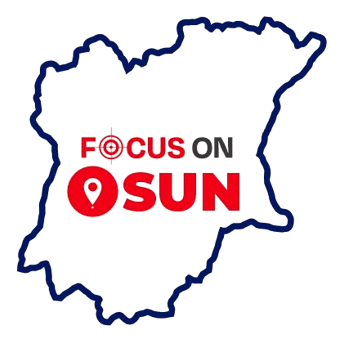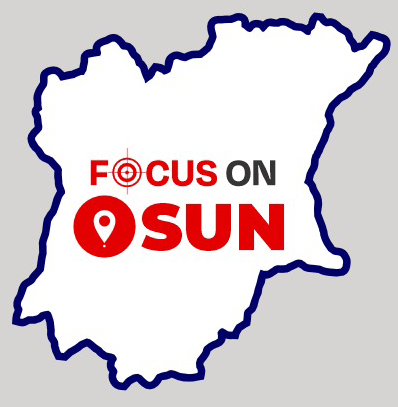Features
History of Osun State
Osun State, located in southwestern Nigeria, is steeped in rich history and tradition. According to Yoruba tradition, Ile-Ife in Osun State is the site where Olodumare began the world’s creation. This city is considered the cradle of life and civilization for the Yoruba people, both within Nigeria and globally. Osun holds significant cultural, spiritual, and technological importance.
The quest for Osun State’s creation began in the 1950s. At that time, the area comprising today’s Osun West, Central, and parts of Osun East was under the administration of the Ibadan District Native Authority. Determined to achieve autonomy, local traditional rulers and citizens petitioned the British Colonial Administration, proposing Osogbo as the headquarters of an autonomous Osun Division.
In 1951, a Commission of Inquiry, known as the H.L. Butcher Commission, was set up by the colonialists to address a crisis in the Ibadan District Native Authority. The Osun Area’s representatives reaffirmed their demand for autonomy during the commission. The request was granted on March 17, 1951, and autonomy for Osun District Towns was recommended on April 1, 1951.
The vision of the founding fathers was realized on August 27, 1991, when General Ibrahim Babangida’s administration created nine new states, including Osun, carved from Oyo State. Osogbo was designated as the capital. This creation marked the fulfillment of a long-held dream for the people of Osun.
Osun State, sometimes referred to as the State of Osun by its government, is bordered by Ekiti and Ondo states to the east, Kwara State to the north, Ogun State to the south, and Oyo State to the west. It is named after the River Osun, which flows through the state and forms part of its southwestern boundary with Oyo State. Formed from the southeastern part of Oyo State on August 27, 1991, Osun’s capital is Osogbo.
Osun is the ninth smallest state in Nigeria by area and the 25th most populous, with an estimated population of about 4.7 million as of 2016. The state features a mix of lowland forests and Guinean forest-savanna mosaic. Notable rivers include the River Osun, Erinle, and Oba. The state is home to diverse fauna such as the mona monkey, common kestrel, and Nigeria-Cameroon chimpanzee.
Primarily inhabited by the Yoruba people, including Ibolo, Ifẹ, Igbomina, Ijesha, and Oyo subgroups, Osun has a rich pre-colonial history. It was divided among various Yoruba states and empires, such as the Oyo Empire. The area was involved in the Kiriji War (1877-1893), a conflict that ended in a British-brokered stalemate. Subsequently, it became part of the British Southern Nigeria Protectorate, merging into British Nigeria in 1914. After Nigeria’s independence in 1960, it was part of the Western Region, then Western State in 1967, and later Oyo State in 1976. Osun State was officially created from Oyo State in 1991.
Economically, Osun relies heavily on agriculture, particularly the cultivation of cocoa, cassava, millet, maize, potatoes, and yams. Other important sectors include services, artisanal mining, and livestock herding. Osun is notable for landmarks like Obafemi Awolowo University in Ile-Ife, a prominent institution of higher learning. Key cities and towns include Ile-Ife, Ila Orangun, Iragbiji, Ada, Ikirun, and Osogbo. The state also has the second highest literacy rate in Nigeria.
The state is known for its cultural festivals, including the Ori Oke and Egungun festival in Iragbiji, Olojo in Ife, and the Osun Osogbo festival.
Governors of Osun State
Leo Segun Ajiborisha (1991-1992): The first military administrator, appointed by General Ibrahim Babangida. He oversaw the transition to civilian rule.
Isiaka Adeleke (1992-1993): The first civilian governor, elected under the Social Democratic Party (SDP). He was removed from office by the military government in November 1993.
Anthony Udofia (1993-1996): The second military administrator, appointed by General Sani Abacha. He continued overseeing the transition.
Anthony Obi (1996-1998): The third military administrator, appointed by General Sani Abacha.
Theophilus Bamgboye (1998-1999): The fourth military administrator, appointed by General Abdulsalami Abubakar.
Bisi Akande (1999-2003): The first executive governor under the Fourth Republic, elected under the Alliance for Democracy (AD). He focused on pro-poor policies and education.
Olagunsoye Oyinlola (2003-2007): The second executive governor under the Fourth Republic, elected under the People’s Democratic Party (PDP). Known for infrastructure development and agricultural initiatives.
Adesoji Rauf Aregbesola (2010-2018): The third executive governor under the Fourth Republic, elected under the All Progressives Congress (APC). Recognized for educational reforms and social welfare programs.
Adegboyega Isiaka Oyetola (2018-2022): The fourth executive governor under the Fourth Republic, elected under APC. Known for continuing the policies of his predecessor.
Ademola Nurudeen Jackson Adeleke (2022-present): A philanthropist and community leader, Adeleke won the governorship election under the PDP after previously being a member of the APC.
Local Government Areas
– Atakumosa East – Iperindo
– Atakumosa West – Osu
– Ayedaade – Gbongan
– Ayedire – Ile-Ogbo
– Boluwaduro – Otan-Ayegbaju
– Boripe – Iragbiji
– Ede North – Oja Timi
– Ede South – Ede
– Egbedore – Awo
– Ejigbo – Ejigbo
– Ife Central – Ile-Ife
– Ife East – Oke-Ogbo
– Ife North – Ipetumodu
– Ife South – Ifetedo
– Ifedayo – Oke-Ila
– Ifelodun – Ikirun
– Ila – Ila-Orangun
– Ilesa East – Iyemogun
– Ilesa West – Ereja Square
– Irepodun – Ilobu
– Irewole – Ikire
– Isokan – Apomu
– Iwo – Iwo
– Obokun – Ibokun
– Odo-Otin – Okuku
– Ola-Oluwa – Bode-Osi
– Olorunda – Igbona
– Oriade – Ijebu-Jesa
– Orolu – Ifon-Osun
– Osogbo – Osogbo
Senatorial District
– Osun Central
– Osun East
– Osun West
Federal Constituencies
– Atakumosa East/West-Ilesha East/West
– Ayedaade/Irewole/Isokan
– Ayedire/Iwo/Ola-Oluwa
– Boluwaduro/Ifedayo/Ila
– Ede North/South/Egbedore/Ejigbo
– Ife Central/Ife North/Ife South/Ife East
– Irepodun/Olorunda/Osogbo/Orolu
– Obokun/Oriade- Odo-Otin/Ifelodun/Boripe


